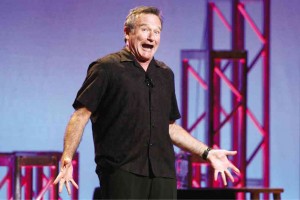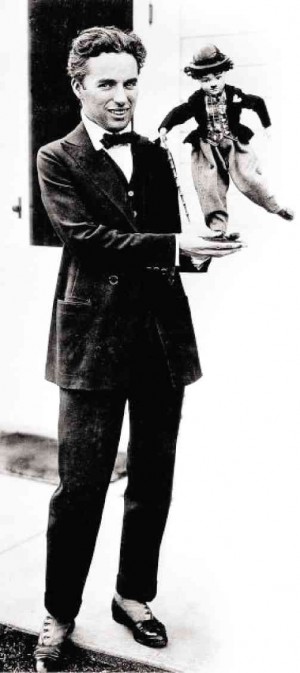Thanks for the grace and genius

ROBIN Williams was one of Hollywood’s illustrious comics who were famously “laughing on the outside, but crying on the inside.” AP
Robin Williams’ countless fans were shocked on Aug. 11 to wake up to the breaking news that their fave comedian for all seasons and reasons had been found dead from asphyxiation, possibly self-induced, after years of deep depression.
Robin Williams, deeply depressed? The report simply didn’t compute.
Williams was famous for his frenetic comedic energy and verve, his great ability to make many people laugh.
So to learn that, all that time, he was in deep depression, that he wasn’t happy—that was a huge disconnect!
Mother lode
And yet, after the initial shock of the tragic report subsided, even Williams’ fans acknowledged that his frenzied and even manic energy could have come from a hitherto unacknowledged, psychologically troubled mother lode of misery and pain.
Indeed, some comedians are “famous” for being hysterically funny onstage or in front of the cameras—but are quite morose and even sullen in their more truly revelatory private moments.
In the 1920s and ’30s, Charlie Chaplin, Harold Lloyd, Buster Keaton and Harry Langdon were known as comics who epitomized the performance style of “laughing on the outside while crying on the inside”— or, even more tellingly, covering up private woes by resorting to the loud, livid but beneficent balm of humor.
Contradictory
Now, Williams joins their celebrated company—but with far more tragic consequences than what these similarly famous comedians experienced in their own “roller-coaster” and frequently contradictory lives.
Now that the deadly deed has been done, there’s little left for us to do than to celebrate the many professional highlights of Williams’ life, which will continue to hearten and inspire others—even if, as it now turns out, they were unable to provide him sufficient psychic satisfaction and surcease to triumph over his personal demons.
Williams’ sudden rise to the top came by way of his “Mork & Mindy” sitcom, followed by his awards and citations for “Good Will Hunting,” “Dead Poets Society” and other “inspirational and desperational” portrayals, his recent comeback to TV comedy, etc. It looked like he would be around “forever”— but it was not to be. Not long ago, his fans were overjoyed when they were told that his big film hit, “Mrs. Doubtfire,” would finally get a sequel— but it now turns out that the yummy cinematic prospect has been permanently nixed by the star’s unexpected exit from the performing scene.
True roots
Williams’ shocking death and its reported cause will also generate endless discussions about the true “roots and reasons” for humor—as dispensed by deeply-troubled comedians.
Some people believe that true art should spring from a happy, optimistic place, because the act of artistic creation is inherently positive and hopeful. However, others believe in the exact opposite, that comedy and satire are the result of jaded and disappointed encounters with human nature, which is basically part-animal and part-spiritual—and in the ongoing battle between those two opposite impulses, the animal side all too often wins. Which is really which?
When all is said and done, all we can do as Williams’ fans is to say a prayer for the repose of his troubled and conflicted soul—and express our gratitude for his uncommon grace and genius.
